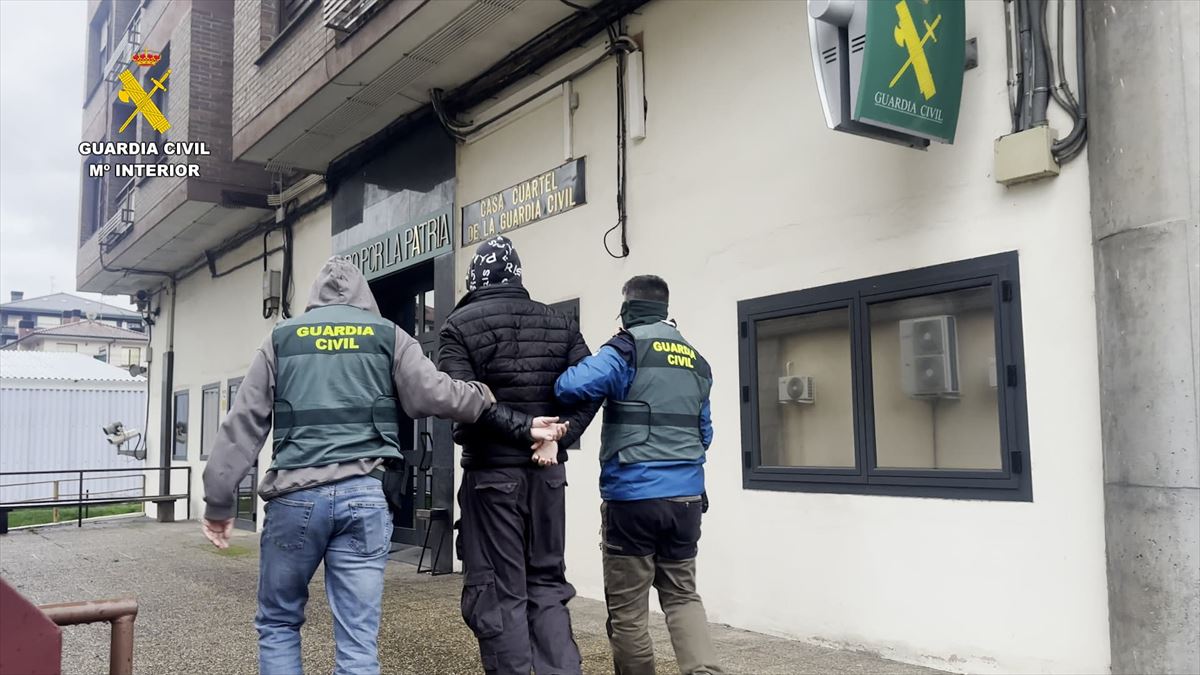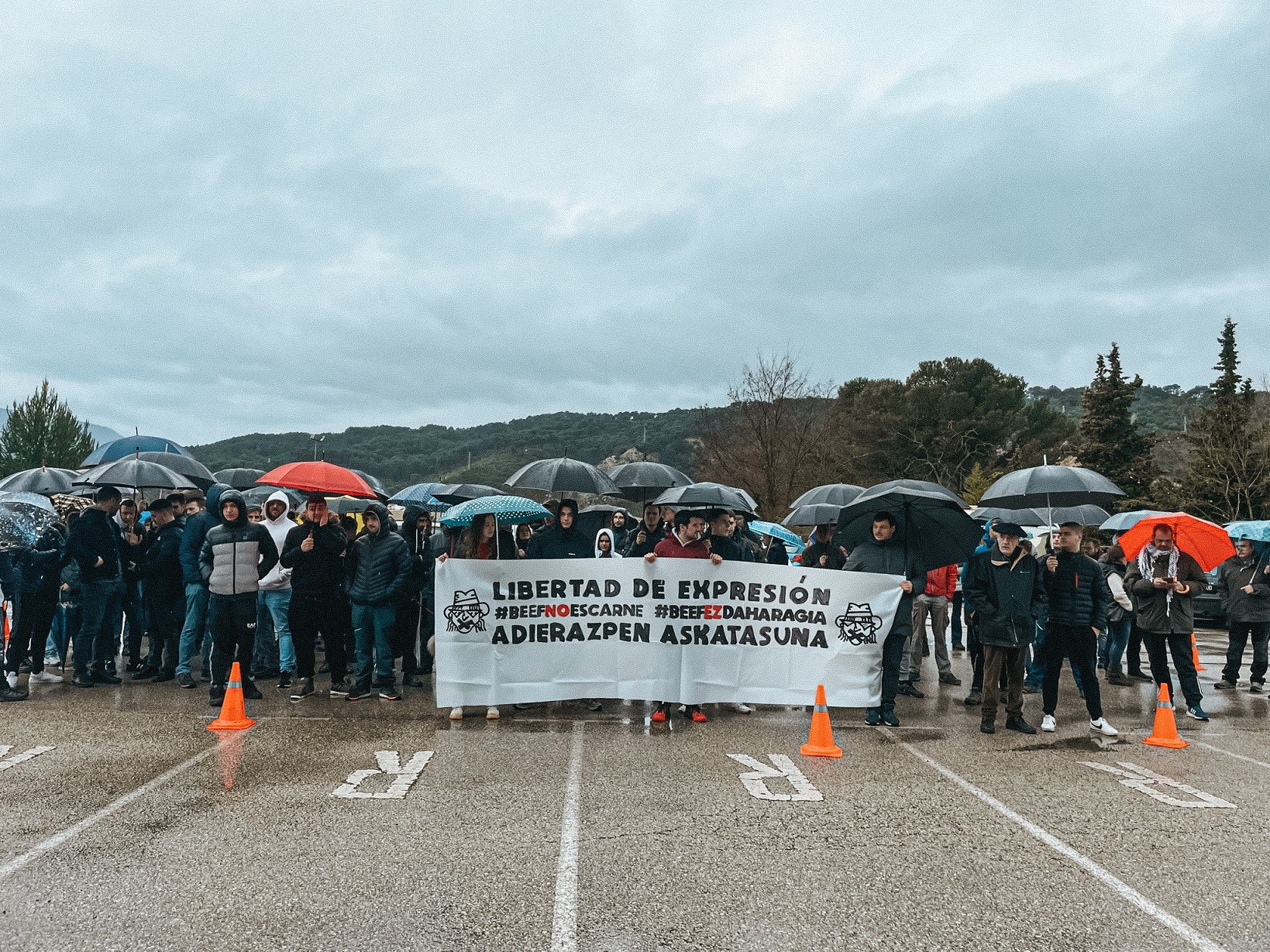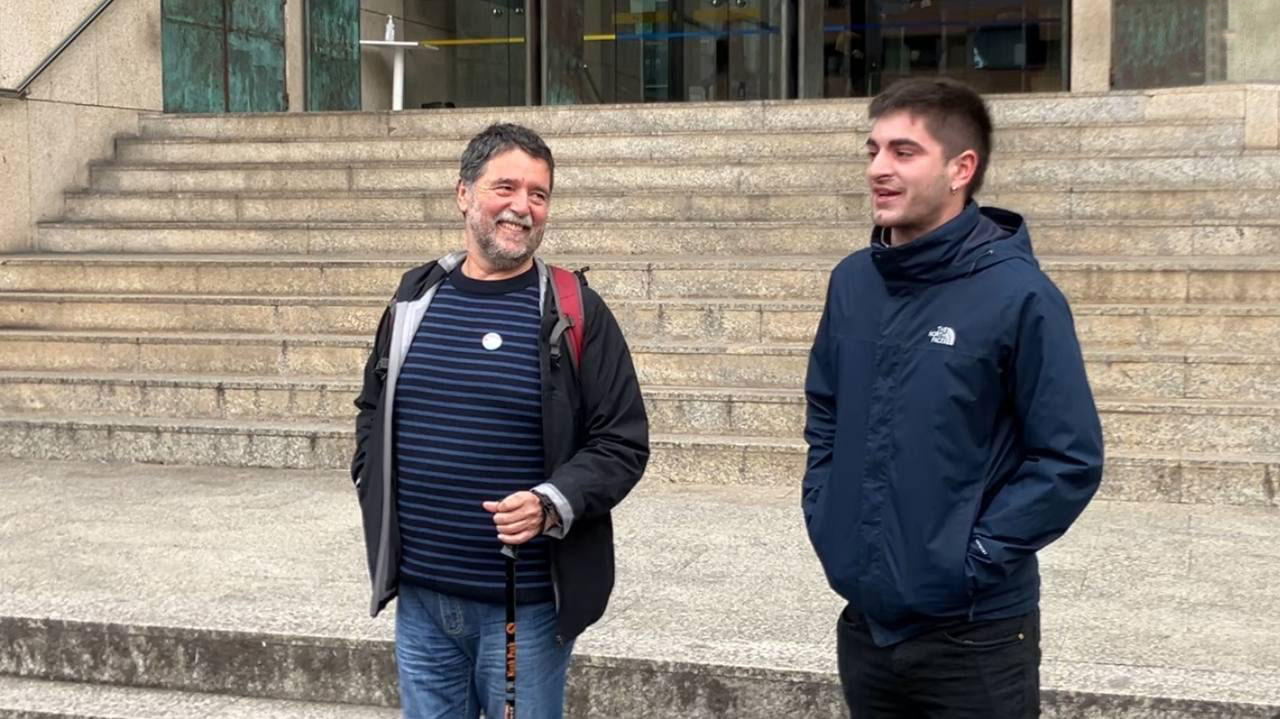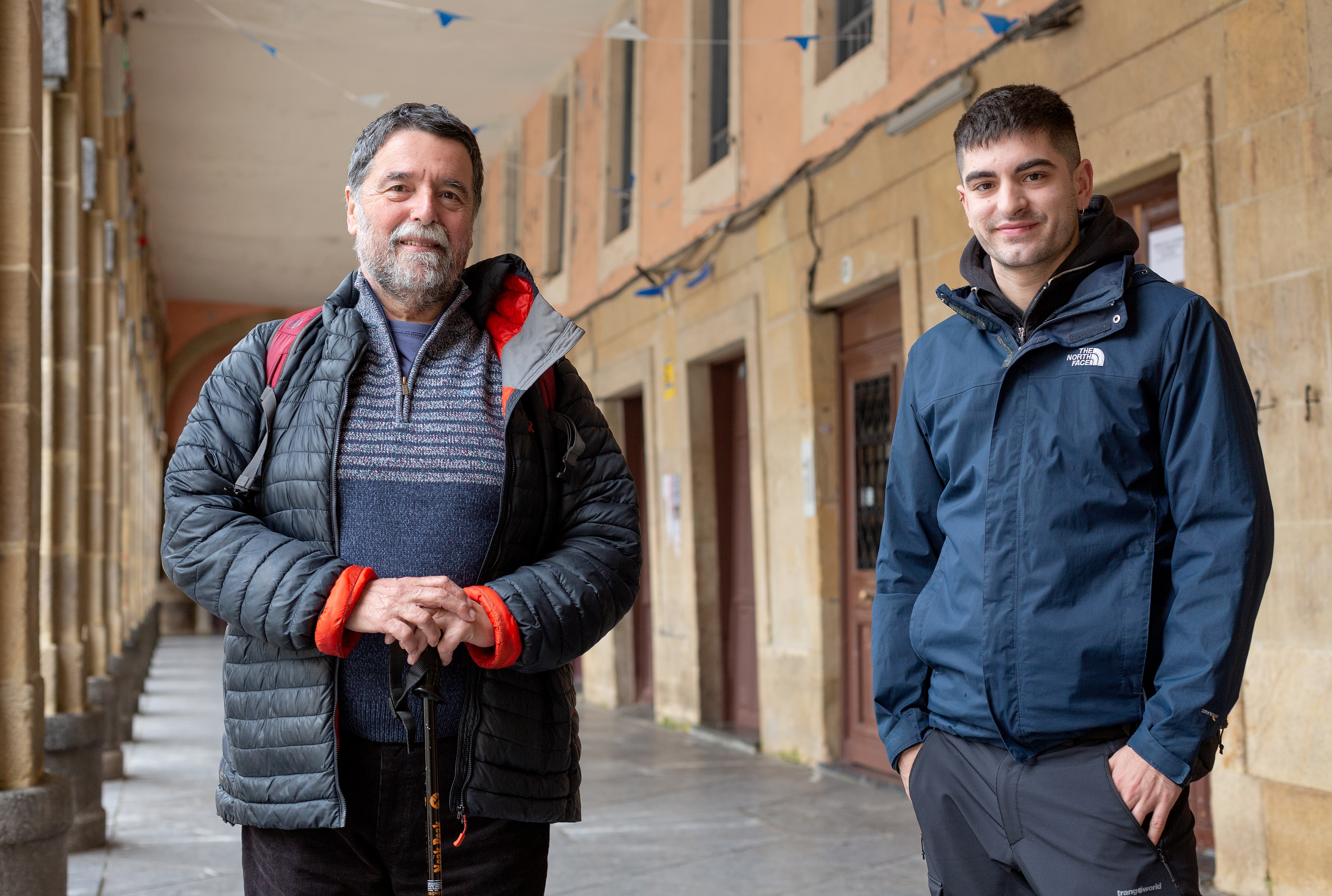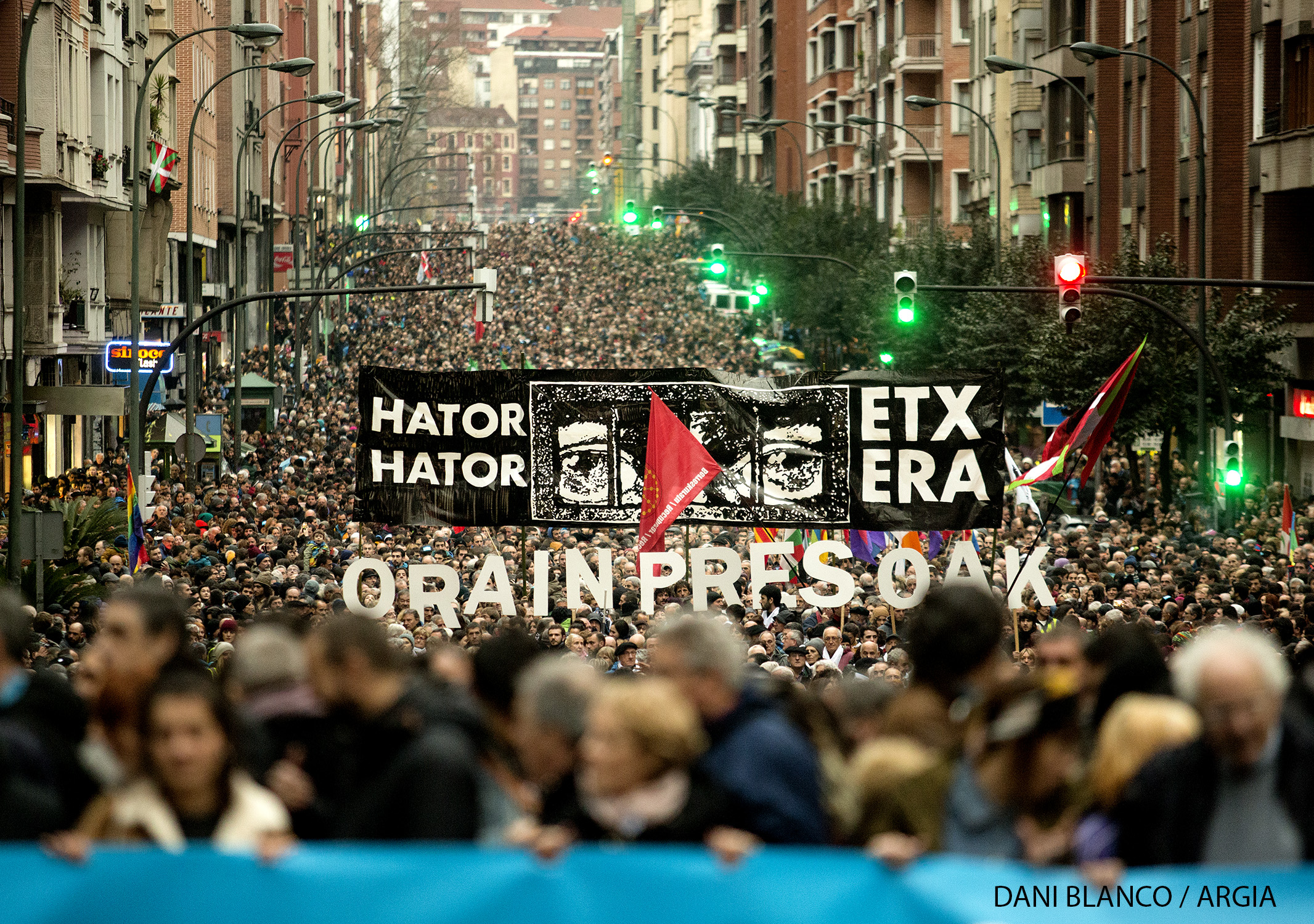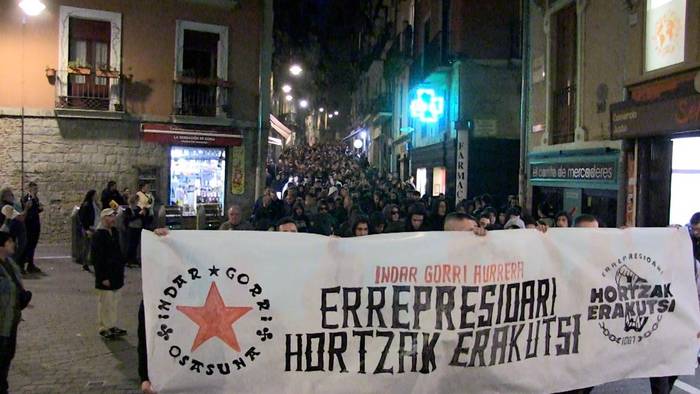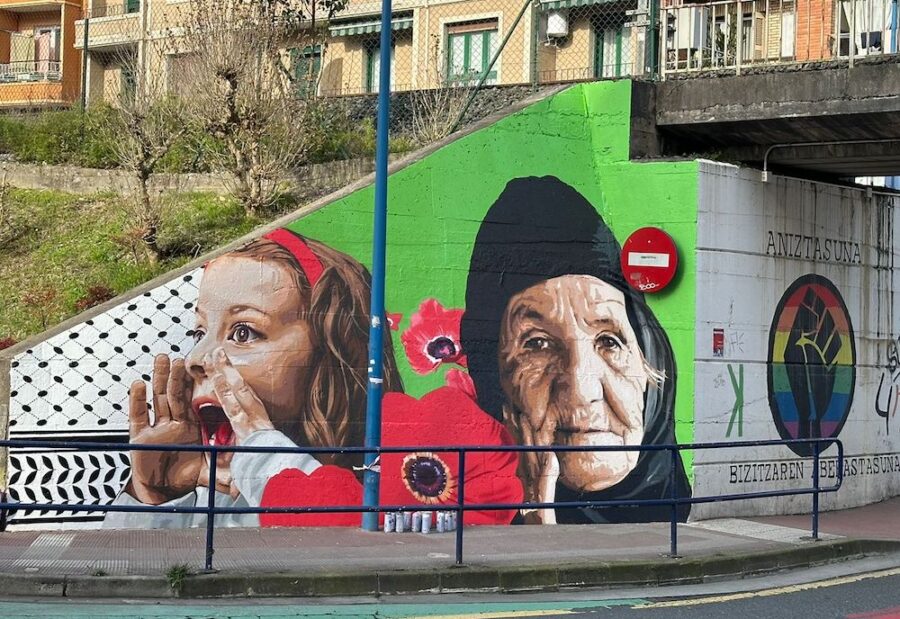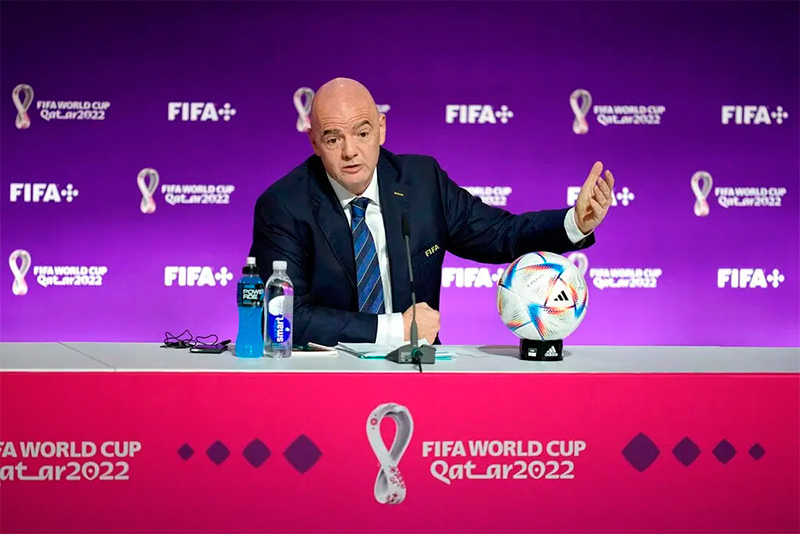The Battle of Water Municipality Is Played This Year
- The company Aquarbe, owner of the multinational Suez, is in charge of water management at Urretxu and Zumarraga. This year the tender in both municipalities ends and the Public Utility platform has been created to demand public water management. Do you want to see the detriment of the privatisation of a human right and a public good?

The only Gipuzkoan municipalities that have privatized water management are Zumarraga and Urretxu. The urban management of water was awarded by the two municipalities to the company Aquarbe, owner of the multinational Suez, and this year the bidding period runs out, so this year it will be decided if it changes to public management as in the other municipalities, if they make another bid or the Aquarbe bid will be extended.
As we enter the mantra of the most efficient and cheap of private management, the inhabitants of Zumarraga and Urretxu have paid over 15 years EUR 1,500 more than legazpiarras, despite the fact that they all drink the same water as Barrendiola and that water is a vital good and a universal right.
Well, seeing the price rise, seeing -- they haven't been easy to see, because Aquarbe hasn't sent any bills since 2018 to 48.97 percent of households. Because the company so decided, not the citizens, everything that goes against the law and consumer rights.
But ... How did they get to that situation? Our questionnaire was answered by Aritz Elgarresta, a member of the Public Utility platform that was presented to the citizens in April. The platform was presented in this video.
Poisonous tempting canons
In the case of Zumarraga, Aquarbe won the 2007 tender and paid the City Hall a fee of EUR 2.5 million. Aquarbe obviously expected great benefits from this service. Along the way, however, the economic crisis and the closure of Arcelor thwarted the Aquarbe forecasts. In view of this, Aquarbe has pressured the City of Zumarraga year after year by requesting an increase in water rates. The minutes of the City Hall reflect the pressure that the City Council of the multinational has suffered and Elgarresta has denounced that "the City Council workers have asked Aquarbe for audits to justify this increase in fees and have not received them". From the platform they denounce: "The City Hall has boosted the rates of protection of the profits of a private company."Despite the fact that in the last fifteen years water consumption in Zumarraga has decreased by 21%, the company's revenue has increased by 32%. According to the platform, Aquarbe already received €2.5 million of profit between the years 2016-2018, so he sees no reason to increase the rates so much. In addition, the platform estimates that in 15 years the City of Zumarraga has spent EUR 1 million on improving pipelines and water infrastructures: these investments have been made on the money that the citizens pay on the water bill, that is, on the citizens’ money, and in most cases it has been Aquarbe who has carried out the works and, therefore, has earned that money.
Elgarresta pointed out that the City of Zumarraga is very responsible for the rise in water rates: "Those who signed the tender are in power today: the socialist party, and also the current mayor was the deputy mayor at that time." He pointed out that a great deal has been done in the Spanish State and that in a hidden way it basically consists of the acquisition of credits at the expense of the citizens: "The City of Zumarraga has already requested a loan of EUR 3 million. It can be tempting to receive fresh money from Aquarbe again. At the time, these 2.5 million invested heavily, but with the money of all and the privatization of a human right". It denounces that water is a human right and that it cannot be left without water because it does not have enough money to pay.
In the following video, the Public Utility platform explains in a very clear and concise way the theme:
Delegating or publishing multinationals?
Following the sequence of contingencies, in 2007 the municipalities did not privatize a public administration by signing a contract with Aquarbe, as it was already private in both localities. According to the explanations of Elgarresta, Urretxu and Zumarraga are the only municipalities that have been involved in the road to the publication of other towns in Gipuzkoa: In the 70's and 80's, some Gipuzkoan municipalities had their water management ammunition, while the others were run by the company Aguas del Norte. In the 90's 65 municipalities in this territory created the Gipuzkoa Water Consortium, including Zumarraga and Urretxu: It is a public entity, the Diputación has 25% of the participation and the map of public companies of Gipuzkoa is composed of Añarbe de Donostialdea and the Maneas de Txingudi. But the management of this public entity is currently private, led by Gipuzkoako Ura, S.A./GUSA, although this company owns the Consortium itself.
Gradually, the municipalities were incorporated into the consortium, or the service was ammunition. But in this process, Zumarraga and Urretxu have not advanced: What was once Aguas del Norte, then entered Aquagest, then divided into several subsidiaries to make facial clean-up problems of transparency in the management of Aquagest, one of them being the multinational Suez, Aquarbe.
The Public Utility platform, consisting of trade unions, political parties and plural agents, argues that water is a human right and a public good and that management must be absolutely public. But when it comes to publishing, there are two options: Comprehensive management through the Gipuzkoa Consortium or partial municipality thereof. In fact, until the waters of the mountains leave the sources of our houses, it goes through different phases that rely on two parts: The Gipuzkoa Water Consortium is responsible for the so-called "discharge management", i.e. the collection, treatment, deposition and purification and discharge of water. The so-called "discharge management" is one that municipalities can do by public means (municipality or assumption of this service by the Consortium) or sell it to multinationals, including the transmission of water to consumers and the channelling of rainwater and fecal water within the municipality.
Elgarresta explains why the Public Utility platform bets on the municipality: "We see the consortium as necessary, because it strengthens territorial cohesion: for example, a country open by area and with few inhabitants would have extremely expensive rates if there were no consortium. The Consortium therefore guarantees a balance between peoples. But on the other hand, it has a lot to improve in the organization, in the structure, to be more transparent and participatory, or to be published. Above all, and also, being those who are currently working at the Aquarbe, we see a good opportunity to bet on the municipality".
It warns that, like water, there are other privatized services in municipalities: "After the privatization wave of the 1990s, let's see if we can move towards publication. Furthermore, the sovereignty of our resources is also very important. When we lose control of our resources, a multinational can do whatever it wants."
No citizen pressure
This year, therefore, will be the challenge of publishing a human right or making it available to the multinationals. How are the balances of strength in municipalities? In the City Hall of Zumarraga there are 7 of the 13 councillors of the PSOE and in the City Hall of Urretxu 7 of the 13 councillors of the PNV. Both have been grouped into the Public Utility platform and all political parties except the PP.
Elgarresta explains that if before the summer the City of Urretxu does not decide anything, the contract with Aquarbe will be extended directly for five years, and then the award would come. If nothing else is decided at Zumarraga before the end of the summer, the contract with Aquarbe would be extended to five years, but year after year.

FACE WATER
In the CAPV each cubic meter of water is paid EUR 1.94. In Zumarraga, 3 euros (50% more expensive).
A neighbor of Zumarraga pays between 25 and 80% more than a legazpiarra who takes water from the same reservoir depending on its neighbourhood and consumption.
In these fifteen years a neighbour of Zumarraga has paid EUR 1,000 more than a legazpiarra. A family increases by EUR 1,500.
In Zumarraga and Urretxu water management is in the hands of Aquarbe. Zumarraga fare is 25% more expensive than Urretxu.

WATER INCREASE FROM YEAR TO YEAR
It is noted that in Zumarraga the rise in water has been year-on-year and has not been the same in each section of consumption. Despite the fact that since 2007 the CPI has risen by 6%, in Zumarraga the price of water has risen by 12%, double.
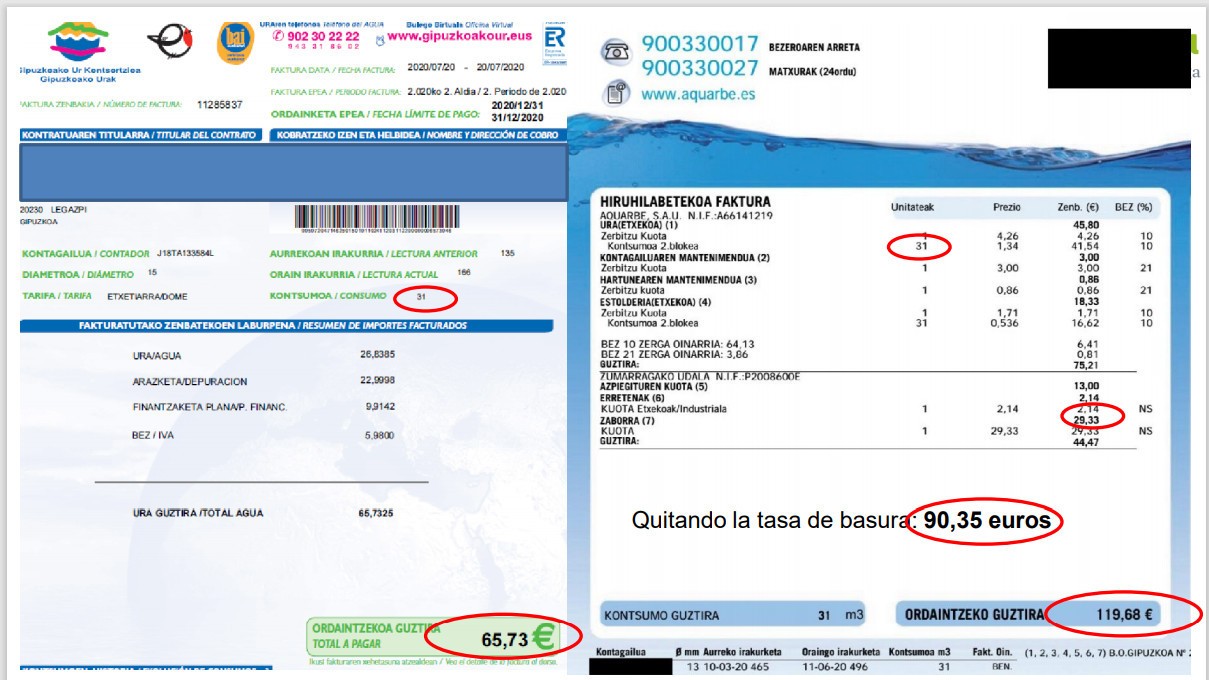
48.97% of the population has not received water bills
In 2018, Aquarbe used the following truction: by means of a letter he informed the citizens that if in 30 days they did not ask for the paper invoices to be sent to him, they would understand that the citizen was sympathetic to his intention not to send any invoice. Those who did not request a special order must access the Virtual Office to view their invoice. The result of this non-transparent communication has been:
5,642 contracts in total.
Of these, 87 received the electronic invoice (1.54%).
1.149 asks that the PDF be sent by email (20.37%).
1.643 call for continued paper shipping (29.12%).
2,763 have not answered the campaign or received an invoice (48.97%).
The Public Utility platform says it is illegal that it is being considered not to issue an invoice and take legal action.
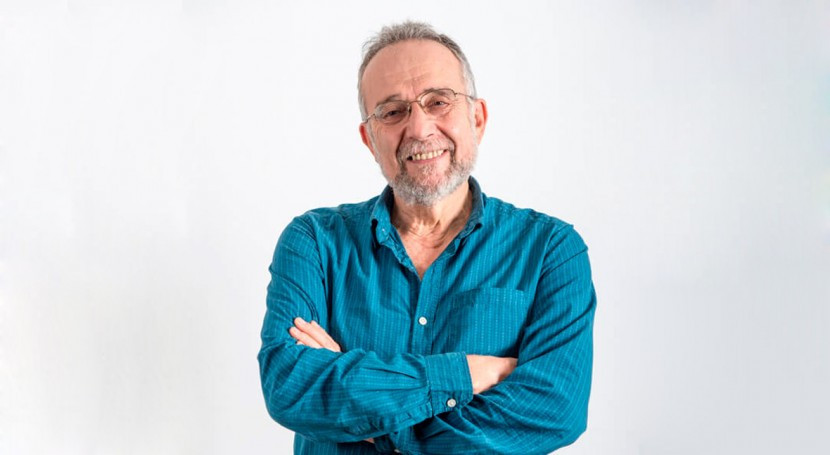
“Water is a human right and no one can be cut off from water because it has no money to pay for it.”
PEDRO ARROJO, United Nations Special Rapporteur
He said that we have to understand water as a human right, in the world there are 2 billion people who do not have access to drinking water. Everyone must be guaranteed a minimum basic water to survive, as this is a basic universal right. Consequently, no one can be cut off from the water service, even if he is unable to pay for it. He wished the Public Utility initiative luck in its requests and particularly appreciated the work of the platform. 22/04/2021 in Zumarraga, at a conference organized by the Public Utility

PUBLIC UTILITY PLATFORM
It consists of:
Political parties: EH Bildu, Elkarrekin Zumarraga, Sortu, Berdeak Legazpi.
Trade unions: ELA, LAB, CCOO.
Social partners: Koodinadora Feminista, Ernai, Bertso Eskola, KKin Zona, Gaztetxea, Mutamu Musical Group Movement, Festival Commission and Association of Pensioners Dignity.
Platform requests:
1. Water is a universal human right and a heritage of all. Fundamental human rights cannot be negotiated.
2. Water management should be 100% public, close and participatory. The possibility of the municipality is preferred.
3. For workers' rights and quality public employment. Incorporate all Aquarbe staff with all guarantees into the new public water management structure.
4th. Fair, social and equitable pricing. Excesses and excesses in charging. The water rate must cover the cost of the service, not the profit of a company.
5. Transparency, information and respect. Invoices must be in all households as soon as possible.
This year marks the 51st anniversary of the United Nations proclamation of International Human Rights Day on 10 December. This date has become important in Euskal Herria and the Human Rights Observatory of Euskal Herria wants to offer some elements of reflection.
Progress on... [+]
Our rights, our future, now! Under the motto, the International Day of Human Rights commemorates the legacy of 76 years. The aim of the day is to promote the construction of a more peaceful, egalitarian and sustainable world. However, while progress is being made, we are faced... [+]
London 1928. At the Victoria and Albert Museum there was a very special painting: in the painting there is a black man, with wig and Levite, surrounded by books and scientific instruments. Thus it was catalogued in the Museum: “Unique satirical portrait representing a failed... [+]











